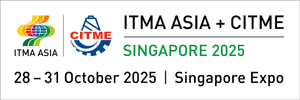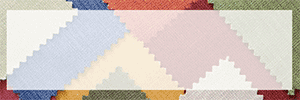ANDRITZ at Textile Recycling Expo 2025: Circularity in focus for a sustainable future.

ANDRITZ is set to present advanced process solutions at Textile Recycling Expo in Brussels, Belgium, from June 4 to 5, 2025 (Booth 2022, Hall C), addressing the growing market demand across the textile recycling sector. At Textile Recycling Expo, a special focus will be on technologies for automated sorting of textiles and subsequent recycling processes – both for textile and nonwoven applications.
COMPREHENSIVE EXPERTISE IN TEXTILE RECYCLING
ANDRITZ has always been a pioneer in providing industrially and economically viable solutions that bring the circular economy to the world of textile fibers. The company offers the full suite from automated textile sorting and textile fiber preparation to mechanical and chemical recycling and combined processes.
At the Textile Recycling Expo, ANDRITZ will highlight its industrial capabilities for recycling a wide range of pre- and post-industrial and post-consumer textile waste for various applications, such as acoustic and thermal insulation, bedding, and automotive. It includes high quality tearing equipment for smooth generation of fiber for nonwoven or yarn production. With more than 100 years of experience, ANDRITZ has comprehensive expertise in this field.
AUTOMATED SORTING – THE GAME CHANGER IN TEXTILE RECYCLING
ANDRITZ and Pellenc ST will present latest insights from the revolutionary plant – and a game changer when it comes to textile recycling processes. With their automated sorting process, the companies have set a benchmark in the industry. Combining the strengths and expertise of ANDRITZ and Pellenc ST, the two leading companies proves the economic viability of verticalizing processes for a greener future.
At the Nouvelles Fibres Textiles facility in Amplepuis, France, customers have the opportunity to conduct trials, test processes, and recycle textiles into fibers. It has a complete automated sorting line on an industrial scale, a pre-tearing line, and a research and development center equipped with ANDRITZ and Pellenc ST machines.
Capable of automatically sorting garments by composition and/or color, the line meets the needs of both post-consumer and post-industrial waste markets. Also hard parts such as buttons and zippers can be removed to prepare the material for further processing in an ANDRITZ tearing machine. The automated textile sorting line can process textile waste to produce recycled fibers for the spinning, nonwovens, and composites industries.



